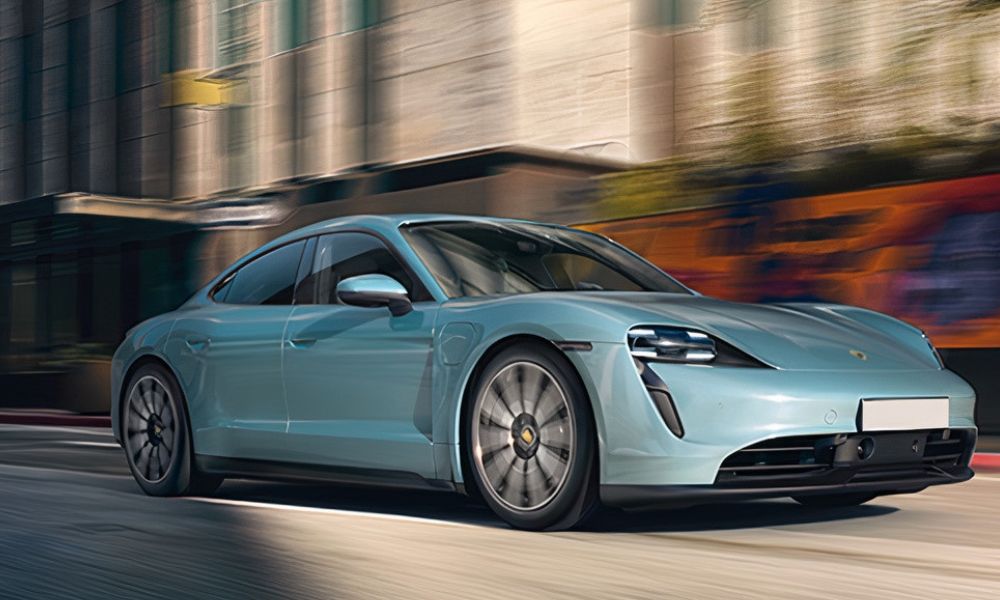December 05 2022,

You’ve probably heard about the benefits of buying an electric vehicle, from reducing greenhouse emissions and noise pollution to government tax incentives and lower maintenance costs.
Though EVs are lower maintenance than their gas-powered counterparts, they do still require periodic checkups, and have mechanisms that require special care. We’ve put together a list of elements to consider when it comes to maintaining your EV and keeping it in top condition.
BATTERY COOLING

The EV battery’s cooling liquid may lose its functionality over time, harming its performance and temperature. Therefore, it’s essential to consider the vehicle’s model-specific battery coolant replacement. For example, some EV manufacturers say their battery coolant doesn’t need to be replaced, while others suggest changing it every 10 to 15 years.
To ensure your EV remains in peak working order, be sure to stick to the recommended maintenance schedule in order to ensure its coolant levels are monitored appropriately.
12-VOLT BATTERY
The EV’s battery powers its accessories, including ventilation, cable plugs, headlights, and sound system. Therefore, it’s important to periodically check the status of your electric car’s 12-volt battery pack, and to replace it when required. Approximately every 70,000 kilometres, the battery cells should be rotated to even out wear–something that would be handled by regular maintenance visits.
Wear and tear on 12-volt batteries can be affected by weather conditions and your driving habits. If you have any questions, be sure to contact your local Dilawri dealership and speak to their friendly and knowledgeable service staff.
BATTERY GRID

The electric powertrain that drives the car can also deteriorate over time, though it would happen more slowly than with the 12-Volt battery. Still, you need to keep an eye on your EV’s battery because damaged ones can decrease your overall driving range, take longer to fully charge, and sometimes even not charge at all.
Your battery usage and charging habits (e.g., always using DC quick chargers, or waiting until the battery is fully depleted, etc.) impact the battery's performance, which is crucial to consider for your next EV maintenance. Regardless of your habits, you will likely need to replace the entire battery once you cross the 320,000-kilometre threshold.
BRAKE FLUID & PADS

Other elements to consider with your maintenance schedule include pads, rotors, and fluids, as electric vehicles use the same type of braking system found in traditional vehicles.
A major difference is that EVs are usually heavier than regular vehicles, which adds more pressure to the braking system every time the car comes to a stop. It usually takes 3–5 years to replace the braking system, but that could change depending on your driving habits and the state of the roads where you live.
As with gas-powered vehicles, another element to consider is that your EV’s braking fluids may become contaminated with water over time, lowering the system’s overall performance and response. Additionally, braking liquids that are highly contaminated by water may cause rust and damage the fluid pipes.
TIRE ROTATION & PRESSURE

Rotating the tires and ensuring they have the right pressure helps to even out their wear and tear, ensuring a balanced and smooth driving experience. That’s why many people choose to rotate their tires twice a year and to perform regular maintenance. Just like vehicles with internal-combustion engines, EVs require regular tire rotations, especially when they’re equipped with a noise-reduction feature.
CLEAN UNDERCARRIAGE

With Canada’s challenging weather conditions and cold-weather treatments (e.g., chemicals, salt), the structure under the car can become rusty. That’s why all vehicles, whether EV or combustion engine, require regular undercarriage cleaning.
FILTERS & WIPERS

As with their gas-powered counterparts, electric vehicles include cabin filters to keep out dust, smoke, and other pollutants. This filter is placed inside the ventilation and A/C system, and can get dusty or clogged with extended use, causing bad odours in the car.
Similarly, windshield wipers can get rusty over time, especially in Canadian weather conditions. Consequently, it’s a good idea to consider changing them once they become streaky and before they become squeaky and have the potential to scratch or damage your windshield.
FINAL THOUGHTS

Electric vehicles have the advantage of lower maintenance costs. However, some parts are similar to traditional gas-powered vehicles in that they require periodic checks, particularly when it comes to the battery and power supply.
Your EV maintenance schedule is defined by the model of car, as well as your driving and charging habits, which can affect your EV’s battery life.

 Canadian-Owned and Operated Since 1985
Canadian-Owned and Operated Since 1985